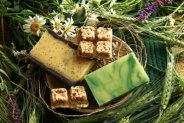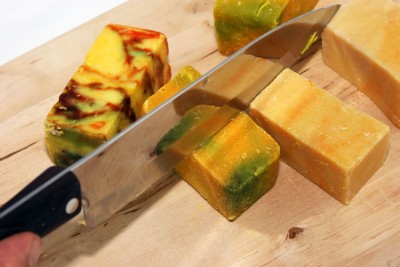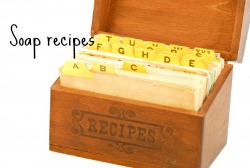This site provides the instructions for the soapmaking method that best fits your intention.

Soapmaking methods:
Find a recipe that inspires you.
You may want a facial soap: handmade olive oil soap is great and shaving soap is a nice Father’s Day gift. Once you know how to make handmade soaps you will be creating your own recipes.
Many people, especially beginners prefer to buy kits. I think that this can be a cost effective way to see if you enjoy making soap before purchasing all kinds of supplies and equipment.
GENERAL INSTRUCTIONS
Instructions will vary depending on what method you decide to use. These instructions are meant to give a general idea of the process.
Once you have all your supplies and equipment, your next step is to get your workspace ready.
- You want it clean. Use plastic or parchment paper to cover if you wish.
- Make sure that you have a printed copy of your recipe.
- Get your molds ready. If you are using wood molds or cardboard boxes; line them with parchment paper or freezer paper.
- Measure the scents (essential oils or fragrance oils). I weigh these when preparing cold and hot process soaps.
- Prepare the colours and additives included in your recipes. If you need to grind exfoliant like oatmeal for a recipe, you should get that ready.
- Weigh lye (sodium hydroxide) and distilled water or liquid.
- Weigh fats, oils, butters or measure and cut premade bases.
- If you chose melt and pour or rebatching just melt in the microwave, double-boiler or crockpot.
- Pour lye into water or liquid. Never pour water or liquid into lye.
- Melt fats, oils and butter.
- You may need to cook the soap mixture for hot process soap and liquid soap.
- At trace, add scents, color and additives.
- Put in molds and let set.
- Unmold and cut and cure, if necessary.

